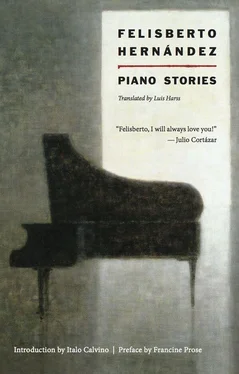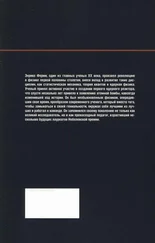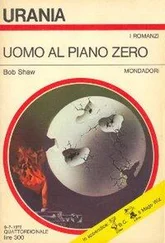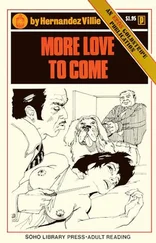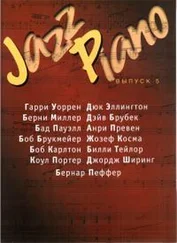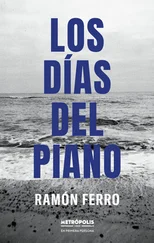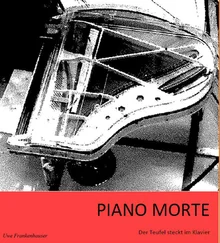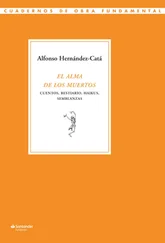Felisberto Hernandez - Piano Stories
Здесь есть возможность читать онлайн «Felisberto Hernandez - Piano Stories» весь текст электронной книги совершенно бесплатно (целиком полную версию без сокращений). В некоторых случаях можно слушать аудио, скачать через торрент в формате fb2 и присутствует краткое содержание. Год выпуска: 2014, Издательство: New Directions, Жанр: Современная проза, на английском языке. Описание произведения, (предисловие) а так же отзывы посетителей доступны на портале библиотеки ЛибКат.
- Название:Piano Stories
- Автор:
- Издательство:New Directions
- Жанр:
- Год:2014
- ISBN:нет данных
- Рейтинг книги:4 / 5. Голосов: 1
-
Избранное:Добавить в избранное
- Отзывы:
-
Ваша оценка:
- 80
- 1
- 2
- 3
- 4
- 5
Piano Stories: краткое содержание, описание и аннотация
Предлагаем к чтению аннотацию, описание, краткое содержание или предисловие (зависит от того, что написал сам автор книги «Piano Stories»). Если вы не нашли необходимую информацию о книге — напишите в комментариях, мы постараемся отыскать её.
Piano Stories
Piano Stories — читать онлайн бесплатно полную книгу (весь текст) целиком
Ниже представлен текст книги, разбитый по страницам. Система сохранения места последней прочитанной страницы, позволяет с удобством читать онлайн бесплатно книгу «Piano Stories», без необходимости каждый раз заново искать на чём Вы остановились. Поставьте закладку, и сможете в любой момент перейти на страницу, на которой закончили чтение.
Интервал:
Закладка:
The café was hidden behind some trees, in a building with overhanging balconies. Anyone trying to go in had to contend with the door, which had a large black knob shaped like a tailor’s iron. The moment you put your hand on the knob it spun without catching in either direction. It seemed the door was laughing at you. If someone inside happened to be sitting close enough — which meant no more than a few feet away — to be seen through the dirty glass, he might signal you with a gesture that meant “Come on! Push!” Then, if you gave a shove, the door would complain but let you through — although as soon as you had your back to it, it got its revenge by bouncing on its spring and slamming on you.
The smoke in the room swallowed up most of the dim lamplight and the colors people wore. It also enveloped the thin columns holding up the balcony where we played. There were three of us: a violin, a flute, and I. It was the smoke, it seemed, that had raised us in our balcony, almost to the white ceiling, as if to a heaven from where we had been hired to send down — through the clouds of smoke — the music no one seemed to be listening to. As soon as we finished a piece we were invaded by the murmur of the crowd. It was a loud, steady murmur, and in winter we were in a sleepy haze. From our seats we would lean over the edge of the balcony and let our eyes roam over the vague shapes below. Occasionally we would focus on a group of heads gathered into the white circle of a marble table, with small dark spots that were cups of coffee held up to their noses. One of the waiters was nearsighted and followed behind his thick glasses, which slowly advised him of an object’s location and then guided him to it, his nose pointing right and left like a compass needle until it had found its target. On one hand he balanced a tray, and with the other he groped his way through the crowd. He had been divorced and remarried and had a house full of children. Seen from above, he was like a small boat making its way between islands, running aground half the time and unloading everything at the wrong ports.
All this happened at night. During the evening show, though, things were different, and not only because one knew it was evening instead of night or because there was a different audience that ordered different drinks. At that time of day the members of a political club with headquarters above the café came down and filled two tables in the rear. They were Spider’s friends and admirers, and had come to see him. Before engaging him in conversation they watched him for a long while from their far corner, waiting for him to finish mixing the cocktails behind the bar. By then a bright light had come on: it shone on his white vest, white shirt, and very white teeth. Opposed to all that whiteness was the black of his tie, brows, eyes, and decidedly black hair. In his face the opposites combined: it was olive-colored — or a shade darker in spots, especially above the brows, which would have seemed immense if he hadn’t shaved them down to two shoestring lines.
Nothing stirred in that face during the mixing ceremony, nor could you have told at what precise moment he picked up a bottle or put it down: the eye wasn’t quick enough to register the split second it took an object to respond to one of his movements. It seemed the bottles and glasses, as well as the ice and strainers, had a life of their own and had been given complete freedom of action. It didn’t matter if they did not obey him at once: they knew their responsibility and would act in good time. The only moment one could satisfy the base need to measure cause and effect was when he was tossing the mix vigorously in the cocktail shaker. At one such moment I happened to go by one of the tables in the rear and I heard someone say: “Shows he’s a man of character!”
Spider knew which cocktail would be most in demand at any given time, so he prepared enough for several glasses. After shaking a mix he distributed it in the glasses with quick flips of his wrist. It was a gesture of such precision it seemed to embody some secret of nature: each drop fell into its glass home as if by family instinct. After relieving the shaker of its first load — which might be of some dark race — he prepared another — of a white race this time — and distributed the new families of drops just as he had the previous ones. Then came the moment we had all been eagerly awaiting: he took a tall spoon, spun the families in each glass around with a few deft strokes until they blended, and, lo and behold, the glasses began to sing, each with its own sound, producing unexpected combinations. And that was the one surprise of the day: the unpredictable way in which apparently similar glasses combined the music of mysteriously different sounds.
Suddenly, Spider would slip into his trim black jacket, and, donning his flat-brimmed hat, which sat stiff and sharp as a razor, he would circle around to the front of the bar, where the owner himself — his friend and coreligionist — would serve him a brandy. By then the politicians at the table in the rear were leaving for the club, where they would be expecting him. On several occasions, as I watched them go, I remembered something I knew about him. He had once had a girlfriend who had asked his permission to go to a dance and insisted on going even when the permission was denied. He had soon found out and broken off with words that were like loud hard slaps. One afternoon the girl had come in looking for him, but he’d had the waiter throw her out, and shortly afterward she had poisoned herself.
At first he had been very friendly toward us, but then one day he had dropped us. There was a row of colored lights on the balcony railing and he was in charge of turning them on when the orchestra struck up. The violin had noticed Spider was in the habit of turning them on just as we sounded the first chord of our opening piece, and one night we decided to play a joke on him: we suddenly struck out a chord at random. The blast combined with the burst of light caught people’s attention and there was some applause, but Spider paced furiously back and forth behind the bar, as if about to spring on us. He stopped talking to us — but years later, when I was no longer playing in the café, he saw me in the street one day and came over with a big open smile to say hello, and we ended up friends again.
Now he was just as friendly when he came back through the dark dining room on his way out to say good-bye and assured me:
“You can relax. Your job is safe in this house.”
I was relieved — my concert had helped, after all. But I knew something was still bothering me, although I couldn’t think what it was. Soon I remembered: I had to tell Dolly not to pet me. And just then she ran in on tiptoes, holding out her hand: I couldn’t avoid shaking it. After a breathless moment she said:
“Good for you, pet ,” and ran out.
During the next sessions Miss Moppet sat silently in the room again, sipping her mate , and I was able to let my thoughts roam at will.
Starting that day when my position in the house had been assured, it was a long time before Miss Moppet interrupted my thoughts. She sipped her mate until the water went cold and then her eyes stopped straying and she, too, settled in to gaze at her memories. But one evening near the end of the session, when the room was very dark, she spoke to me. At that moment she was the farthest thing from my mind, and when her words struck me and the silence collapsed I made an awkward move and kicked the piano. While the sound box was still reverberating she let out a coarse laugh. Then she asked, for the second time:
“What did you say was the name of that nice little tango you just played?”
My first impulse was to tell her, but then I decided the title — “Hello and Goodbye” — might sound like an allusion to the boyfriend who had shipped out with another woman, and instead I switched on the light, intending to hand her the score so she could see for herself. But she read my mind and stopped me before I could get up:
Читать дальшеИнтервал:
Закладка:
Похожие книги на «Piano Stories»
Представляем Вашему вниманию похожие книги на «Piano Stories» списком для выбора. Мы отобрали схожую по названию и смыслу литературу в надежде предоставить читателям больше вариантов отыскать новые, интересные, ещё непрочитанные произведения.
Обсуждение, отзывы о книге «Piano Stories» и просто собственные мнения читателей. Оставьте ваши комментарии, напишите, что Вы думаете о произведении, его смысле или главных героях. Укажите что конкретно понравилось, а что нет, и почему Вы так считаете.
